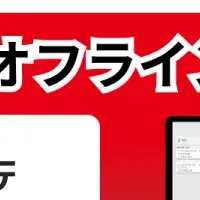
Majority of Businesses Cling to Outdated Technology Despite Urgent Need for Modernization
Majority of Businesses Cling to Outdated Technology
A surprisingly high number of organizations, around 92%, are still dependent on legacy systems, as revealed in a recent report by Growth Acceleration Partners. This report highlights a troubling trend: although businesses are aware of the modernization necessity, many struggle to implement it effectively. Despite ongoing advancements in technology, companies continue to rely on older systems like Visual Basic 6.0, VB.NET, PowerBuilder, Clarion, and Classic ASP. These legacy platforms not only present maintenance challenges but also pose significant security risks.
Key Findings from the Report
The comprehensive analysis, titled "2025 State of Legacy Development & Modernization," outlines several critical insights regarding the current landscape of legacy technology. Key points from the report include:
- - Time Constraints: Approximately 71% of respondents indicated that a lack of time is the primary roadblock preventing them from modernizing their legacy applications.
- - Modernization Plans: Despite the challenges, 41% of organizations plan to initiate modernization processes within the next year, indicating a shift towards addressing this issue.
- - Focus on Web Technologies: 60% of surveyed companies identified web technologies as their top priority for future development, underlining the demand for more contemporary solutions.
- - Cloud Adoption: With 57% of respondents ranking cloud technologies among their top two priorities, the shift toward cloud-based infrastructures is clearly gaining momentum.
Furthermore, the report lists Angular (38%), React (37%), and Blazor (32%) as the most popular web frameworks among the respondents, illustrating a move toward modern web development platforms.
The Real Challenge of Modernization
Darryl Worsham, the General Manager of the Modernization business unit at GAP, emphasizes that modernization has become a necessity rather than an option. He states, "Our survey confirms what IT leaders and business decision-makers already know: modernization is a priority, but executing it efficiently is the real challenge." The inherent costs associated with maintaining legacy systems, including hidden expenses related to security breaches and operational inefficiencies, create an urgent argument for businesses to reevaluate their technology strategies. A staggering 68% of companies surveyed reported security breaches linked to their reliance on outdated software, highlighting the pressing risks associated with delaying modernization.
Organizations aspiring to modernize encounter various challenges, primarily related to investments of time, costs associated with system upgrades, and resource availability. Nevertheless, the report emphasizes that with a well-defined strategic framework—such as performing thorough project assessments, developing a clear transformation strategy, and focusing on security and user adoption—companies can navigate the complexities of modernization successfully.
As the emphasis on web and cloud technologies increases, the report suggests that modernization does not necessarily have to be a disruptive or overly expensive process. Automation and expert guidance can streamline transitions, promoting efficiency while minimizing the impact on operations.
The complete report, offering in-depth analytics of modernization strategies and technologies, can be accessed at Mobilize.
About Growth Acceleration Partners
Growth Acceleration Partners is a leading consulting and technology services firm focused on helping organizations modernize their software and data engineering solutions to remain competitive. By leveraging extensive modernization services and incorporating AI tools, they enable businesses to harness the power of technology efficiently. To learn more about their services, visit We Are GAP.
Topics Business Technology)










【About Using Articles】
You can freely use the title and article content by linking to the page where the article is posted.
※ Images cannot be used.
【About Links】
Links are free to use.